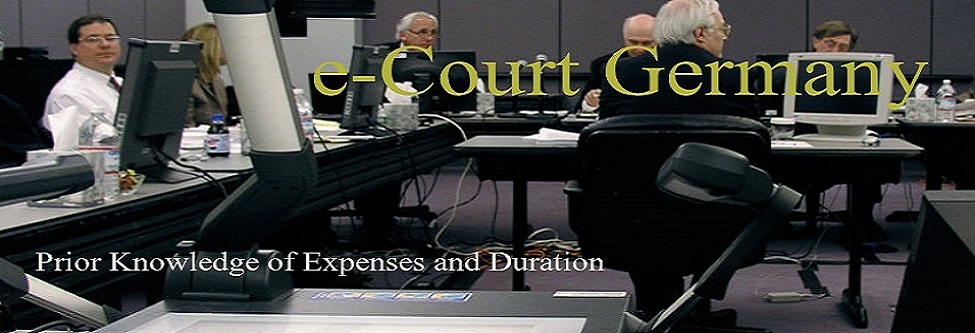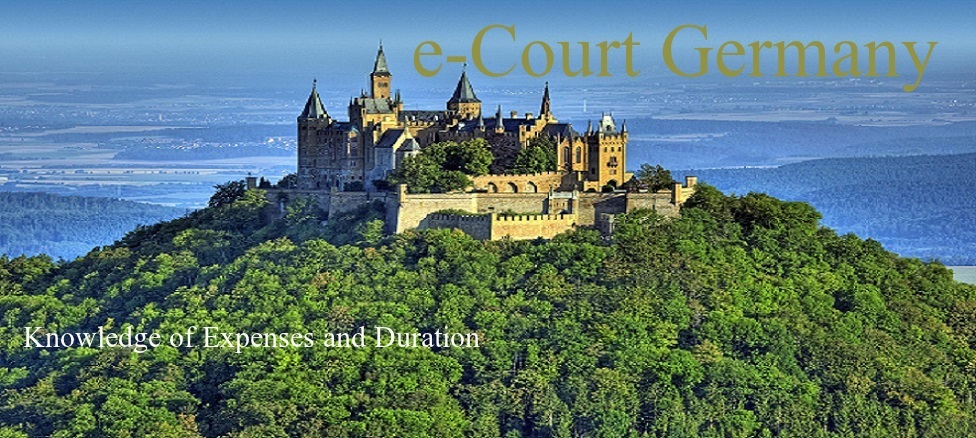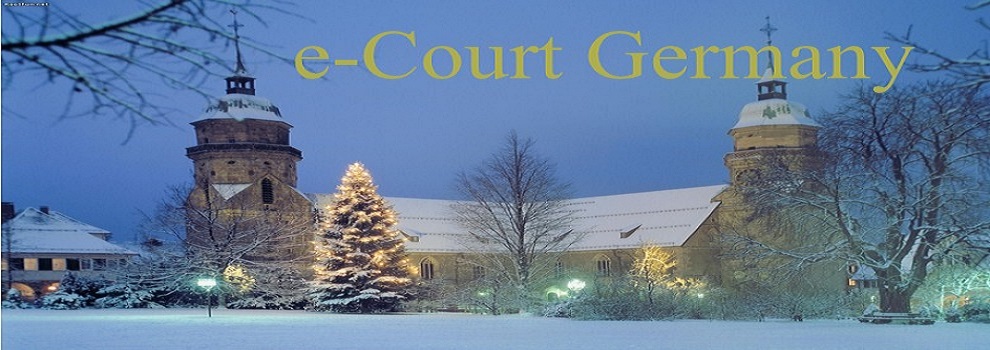That said, an arbitration-friendly jurisdiction is not only one that recognises and enforces arbitral awards, it is also a jurisdiction that recognises and supports party autonomy in arbitration. German courts continue to be strong supporters of party autonomy. By way of recent example, the OLG Frankfurt confirmed that party agreement as to arbitral procedure is a fundamental feature of international arbitration and must be respected. There, the court held that a procedural order, drafted in agreement with the parties, constituted a procedural agreement between the parties that was binding on the arbitral tribunal. In deviating from the procedural agreement, the arbitral tribunal created a ground to challenge the award on the basis of section 1059(2) of the ZPO, namely the ground found in article V(1)(d) of the New York Convention, that the arbitral procedure was not in accordance with the parties’ agreement. The court ruled that had the correct procedure been followed (that is, the parties’ agreed procedure), there could have been a different outcome, and ultimately a different final decision by the arbitral tribunal. Accordingly, the court set aside the award.
The OLG Munich reconfirmed this principle of party agreement in a decision related to an award on arbitral costs (see OLG Munich (23 July 2012), 34 Sch 19/11 SchiedsVZ 2012, 282). The parties had agreed on the ICC Rules, which allow an arbitral tribunal discretion in allocating costs. The costs determined by the Arbitral Tribunal were substantially more than would (or could) have been ordered under the German Lawyers Compensation Act. Nonetheless, the OLG Munich confirmed the costs award, noting that the parties’ agreement as to the use of the ICC Rules, and thereby the agreement that the Arbitral Tribunal has discretion to award costs, was a valid and conclusive agreement on arbitral procedure pursuant to section 1042(3) of the ZPO.
Accordingly, what we see is that the German courts will ensure that party autonomy is respected, but at the same time, are also able to balance that line with the principle of finality of arbitral awards.
Arbitration in Germany growing across all areas
Given the support for arbitration in Germany and its popularity among German companies in general, it is of no surprise that a wide variety of industry sectors use arbitration as a means of dispute resolution. Indeed, the popularity of arbitration as a dispute settlement mechanism has also spilled over to industries which were traditionally rather inclined to invoke the jurisdiction of state courts. In line with international trends (see Queen Mary, University of London/PWC 2013 Survey Corporate Choices in International Arbitration: Industry Perspectives), construction and energy are key sectors which use arbitration as a method of dispute resolution. Post-M&A arbitration proceedings form part of the “basic” commercial arbitration.
With respect to the energy sector in Germany, the heavyweight users of arbitration such as the major energy companies RWE, E.ON, EnBW regularly refer disputes to arbitration. There have been multiple arbitral proceedings in relation to the German energy sector; arbitration in relation to wind parks and gas price adjustment is currently very en vogue. In early 2011, two of the major German energy corporations, E.ON Ruhrgas and RWE, announced that they were involved in numerous arbitral proceedings with their respective gas suppliers. The subject of these disputes was the price structure and price adjustment mechanisms contained in long-term gas supply contracts (see Pörnbacher/Duncker/Baur “Gaspreisanpassungs-Schiedsverfahren – Hintergründe und prozessuale Besonderheiten” SchiedsVZ 2012, 289; see also Global Arbitration Review “ICC panel revises Gazprom Export price formula” Wednesday, 3 July 2013). While most of the gas price adjustment arbitration proceedings are settled, this energy-giant arbitration was finally determined by an arbitral tribunal only recently. In addition, it should also be noted that the German arbitrators involved in this dispute were Sigfried Elsing and Inka Hanefeld, two experts included in the Who’s Who Legal list of German arbitration specialists.
As to the construction sector, German companies are also heavyweight users in this area of arbitration. Fraport AG, the airport management and construction company is involved in the well-publicised and long-running dispute with the Philippines, as is the now insolvent German construction company Walter Bau AG, which is still seeking the outstanding payments of an award made in its favour as against Thailand (see Global Arbitration Review “Thailand award confirmed in US” Thursday, 9 August 2012). Indeed, the enforcement of this award against Thailand involved one of the more interesting enforcement procedures seen most recently: the seizure of the Crown Prince of Thailand’s plane while it was parked at Munich Airport (see Global Arbitration Review “Thai prince’s plane seized in Munich” Wednesday, 13 July 2011).
In this respect, Germany companies are increasingly utilising the dispute resolution methods available under bilateral investment treaties (BITs) and engaging in investment arbitration. Despite the recent takeover by the EU of competence to conclude BITs at the European level, Germany has some 128 BITs in place (having been the first country to enter into a BIT with Pakistan in 1959), and these are relied on by German companies who have made foreign investments. By way of example, shopping mall giant ECE Projektmanagement GmbH & Co KG filed arbitration proceedings under the German-Czech BIT after the Czech ministry for regional development allegedly withdrew planning approval for the construction of a shopping centre in Liberec, a city in the northwest of the Czech Republic. German utility Gelsenwasser has also filed an ICSID claim against Algeria over the termination of a water management contract (see Global Arbitration Review “Water provider brings claim against Algeria” Friday, 19 October 2012; ICSID Case No ARB/12/32). Further, the Federal Republic of Germany has its second ICSID case against Vattenfall (ICSID Case No. ARB/12/12 with German counsel on both sides, while Claimant’s lead counsel is Swedish Mannheimer Swartling).
Developments in Germany/conclusion
Accordingly, it is clear that Germans and Germany are heavy users and strong supporters of international arbitration. Arbitration proceedings will continue to grow in Germany, and the German courts can encourage this by continuing to correctly balance the line between finality of arbitral awards and upholding the fundamental principle of party autonomy. As German parties continue to make use of BITs, we can only expect that German companies will become more involved in investment arbitration, beyond their current significant involvement. In short, Germany is open for arbitration business.
Arbitration in Germany: Open for Business ( cont'd )

-
TOPICS:
- ABOUT e-COURT
- home
- preliminary information
- introduction ( About us )
- benefits
- scope of legal areas
- directorate
- supervisory board
- advisory council
- originating partners
- e-Court & ADRpartners
- articles of operation
- privacy
- legal information
- in the news
- ( e-Court versus ADR )
- COSTS
- *** introduction
- *** membership
- *** court fee
- *** escrow
- *** hearings costs
- *** attestation costs
- *** extrajudicial costs
- *** legal counsel fees
- *** subsequent costs
- frequently asked questions
- OFFLINE NETWORKING
Endorsements ( 1/2000 + ):
- Patricia M. Swerhone
Waters and Associates, Barristers & Solicitors, Toronto - Kenneth J. Byrne
Immigration and Real Estate Lawyer at Benson Buffett, Newfoundland And Labrador - Amy M. Crosbie
Partner at Curtis, Dawe, Newfoundland And Labrador - Justice Clark
Partner at Simmons Da Silva + Sinton LLP, Toronto - Stanley Potter
Owner, Stanley J. Potter, Barrister & Solicitor, Toronto - Justice Clark
Partner at Simmons Da Silva + Sinton LLP, Toronto - Beth A. Sheppard
Shareholder/Director, Benson Buffett PLC Inc., Newfoundland And Labrador - Tony Lafazanis
Personal injury lawyer at Tony Lafazanis, Toronto, - Steve A.
Lawyer at Defend Your Points - Traffic Ticket Lawyers, Toronto - Tina Schultz
Owner ~ Broken Link Divorce Planning, Calgary - Joseph W.J. F.
General counsel at Law Office, New Brunswick, Canada - Diana McGuire
Foord and Davies Law Firm, Ottawa - Anushika Anthony
Personal Injury Lawyers, Toronto - James A. Carr
Barrister and Solicitor at Carr Quinn King, Edmonton - ( Endorsements continued.....)















